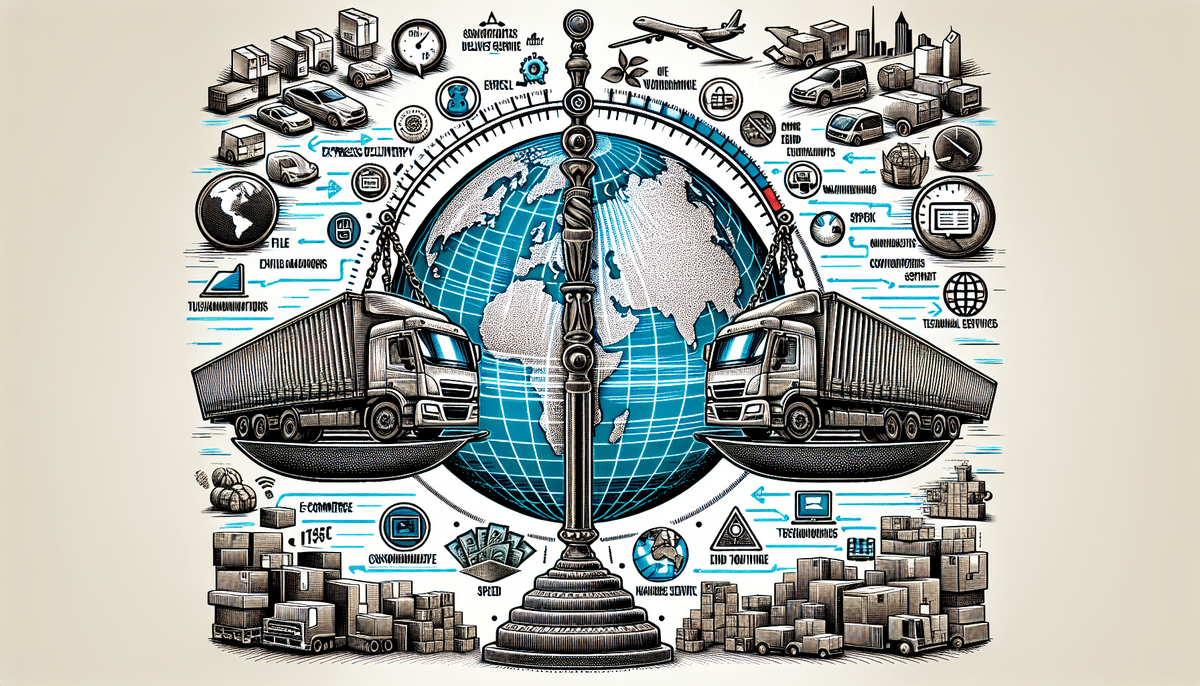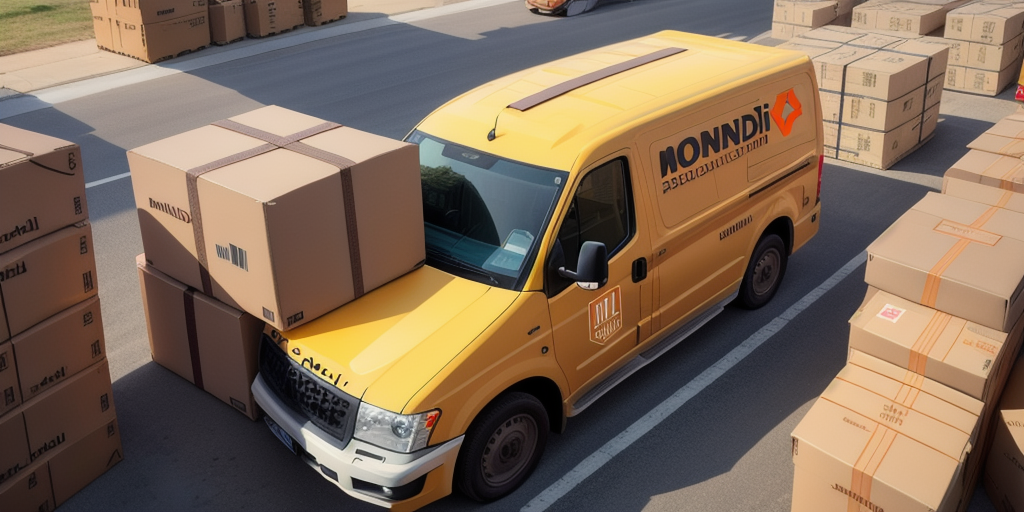FedEx vs DHL eCommerce: A Comprehensive Comparison
When it comes to shipping and logistics, FedEx and DHL eCommerce are two of the most prominent companies globally. With decades of experience, both have refined their services to offer efficiency and reliability. However, choosing between them requires an understanding of their unique offerings and strengths. This article provides an in-depth analysis of FedEx vs DHL eCommerce, highlighting key differences and evaluating which might be better suited for your business needs.
Company Histories and Evolution
FedEx: From Overnight Courier to Global Logistics Leader
FedEx was founded in 1971 by Frederick W. Smith. Initially launched as an overnight courier service within the United States, FedEx has expanded its operations to over 220 countries, becoming a leader in global logistics. According to FedEx’s official history, the company has continually innovated, introducing services like FedEx Express, FedEx Ground, and FedEx Freight to cater to diverse shipping needs.
DHL eCommerce: Specialized Solutions for the Digital Age
DHL eCommerce, a division of the DHL Group founded in 1969, was launched in 2014 to focus specifically on the burgeoning e-commerce market. Operating in over 220 countries and territories, DHL eCommerce provides tailored logistics solutions for online businesses, including warehousing, fulfillment, and last-mile delivery. According to the DHL eCommerce overview, the division aims to enhance the efficiency and reliability of e-commerce shipping.
Services Offered by FedEx and DHL eCommerce
FedEx: Diverse and Advanced Logistics Solutions
- Express Delivery: Overnight, international, and same-day delivery options.
- Supply Chain Management: Comprehensive solutions including warehousing and fulfillment.
- Specialized Services: SenseAware® for real-time monitoring of sensitive shipments.
- Technology Integration: Advanced tracking and automated systems.
FedEx's SenseAware® service provides real-time tracking and environmental monitoring, ensuring the optimal condition of high-value and sensitive shipments.
DHL eCommerce: End-to-End E-Commerce Logistics
- Warehousing and Fulfillment: Efficient storage and order processing.
- Last-Mile Delivery: Ensuring packages reach customers promptly.
- International Shipping: Express and reliable parcel shipping services.
- Integrated Supply Chain Solutions: Seamless management of logistics operations.
Delivery Speed and Reliability
FedEx: Speed and Global Reach
- Delivery Options: Same-day, overnight, and two-day delivery.
- Global Network: Extensive transportation and distribution facilities ensuring swift delivery worldwide.
According to Statista, FedEx handles millions of packages daily, leveraging its vast network to maintain high delivery speeds and reliability.
DHL eCommerce: Efficient E-Commerce Focus
- Express Shipping: Fast delivery times to over 220 countries and territories.
- Last-Mile Services: Ensuring timely delivery to customers' doorsteps.
DHL eCommerce emphasizes reliability in e-commerce shipping, providing consistent delivery schedules that meet the demands of online retailers and their customers.
Cost Comparison
FedEx: Competitive Pricing with Premium Services
FedEx offers competitive rates that vary based on package size, weight, destination, and delivery speed. While generally premium-priced, the costs are justified by the extensive services and reliability provided. Businesses are encouraged to use FedEx's rate tools to estimate shipping costs based on specific needs.
DHL eCommerce: Cost-Effective Solutions for Online Businesses
DHL eCommerce provides cost-effective shipping options tailored for e-commerce businesses. Their pricing structure is designed to accommodate high-volume shipments, making it a viable option for retailers looking to optimize their logistics expenses. Detailed pricing information can be found on the DHL eCommerce shipping services page.
Technology and Innovation
FedEx: Pioneering Logistics Technology
- Real-Time Tracking: Advanced tracking systems for precise shipment monitoring.
- Automated Warehousing: Utilizing robotics and automation to enhance efficiency.
- Digital Tools: Online shipping tools and APIs for seamless integration with business systems.
FedEx's investment in technology has positioned it as a leader in logistics innovation, continually enhancing its service offerings through technological advancements.
DHL eCommerce: Digital Solutions for Modern Retailers
- Web-Based Fulfillment Platform: Streamlining warehousing and shipping processes.
- Data Analytics: Leveraging data to optimize supply chain operations.
- Integrations: Seamless integration with e-commerce platforms for efficient order management.
DHL eCommerce focuses on providing digital solutions that cater specifically to the needs of online retailers, enhancing operational efficiency and customer satisfaction.
Environmental Sustainability
FedEx: Commitment to Carbon Neutrality
- Carbon-Neutral Goals: Aiming for carbon-neutral operations by 2040.
- Alternative Fuels: Investing in electric and alternative-fuel vehicles to reduce emissions.
- Eco-Friendly Packaging: Utilizing sustainable materials and practices.
FedEx is dedicated to reducing its environmental impact through significant investments in sustainable practices and technologies. More information can be found on their sustainability page.
DHL eCommerce: Sustainable Shipping Solutions
- Carbon-Neutral Shipping: Offering carbon-neutral shipping options to customers.
- Renewable Energy: Implementing renewable energy solutions across operations.
- UN Global Compact: Adhering to principles of environmental sustainability.
DHL eCommerce integrates sustainability into its operations, providing eco-friendly shipping options and adhering to global environmental standards. Details are available on the DHL sustainability page.
Customer Service and Support
FedEx: Reliable and Accessible Support
- 24/7 Support: Available via phone, email, and live chat.
- Self-Service Tools: Online tracking, shipping management, and account services.
- Dedicated Support Teams: Personalized assistance for business clients.
FedEx is renowned for its reliable customer service, offering multiple channels for support to ensure customer satisfaction.
DHL eCommerce: Comprehensive Customer Assistance
- Multiple Support Channels: Including a dedicated support team and online resources.
- Proactive Notifications: Keeping customers informed with real-time updates and alerts.
- Online Knowledge Base: Providing answers and solutions to common queries.
DHL eCommerce ensures comprehensive customer support through various channels and proactive communication, enhancing the overall customer experience.
Global Presence and Network
FedEx: Extensive International Operations
- Global Reach: Operating in over 220 countries and territories.
- International E-Commerce Solutions: Supporting businesses looking to expand globally.
- Robust Supply Chain: Efficient cross-border delivery systems.
FedEx's extensive global network facilitates swift and reliable international deliveries, making it a preferred choice for businesses with global customers.
DHL eCommerce: Strategic Global Infrastructure
- Worldwide Network: Serving over 220 countries and territories.
- Localized Services: Tailored logistics solutions to meet regional market needs.
- Strategic Partnerships: Collaborating with local providers to enhance service quality.
DHL eCommerce's strategic global infrastructure ensures robust support for businesses operating in diverse markets, providing consistent and reliable logistics services.
Future Trends and Innovations
FedEx: Embracing Technological Advancements
- Automation and Robotics: Enhancing operational efficiency through advanced technologies.
- Electric Fleet Expansion: Increasing the use of electric vehicles to reduce carbon footprint.
- AI and Machine Learning: Leveraging AI for predictive analytics and improved decision-making.
FedEx continues to invest in innovative technologies to stay ahead in the competitive logistics industry, ensuring scalable and sustainable growth.
DHL eCommerce: Driving Digital Transformation
- Digital Platform Enhancements: Improving online tools and integrations for better user experience.
- Advanced Data Analytics: Utilizing big data to optimize supply chain operations.
- Sustainable Innovations: Developing new solutions to further reduce environmental impact.
DHL eCommerce is focused on digital transformation and sustainability, aiming to provide cutting-edge solutions that meet the evolving needs of e-commerce businesses.
Conclusion: Making the Right Choice for Your Business
Choosing between FedEx and DHL eCommerce depends on your business's specific needs and priorities. Both companies offer a range of reliable and efficient services, but their strengths differ:
- FedEx: Ideal for businesses requiring fast, global delivery with advanced tracking and comprehensive logistics solutions.
- DHL eCommerce: Best suited for e-commerce businesses seeking cost-effective, end-to-end logistics services with a strong focus on last-mile delivery.
By evaluating factors such as pricing, delivery speed, customer service, technological capabilities, and sustainability efforts, you can make an informed decision that aligns with your business objectives. Both FedEx and DHL eCommerce are committed to supporting businesses with high-quality logistics services, ensuring your shipments are handled with care and efficiency.



















